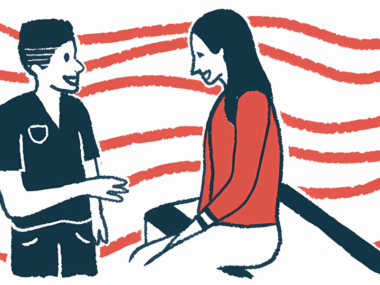I may be overprotective, but it’s progress, not perfection
Being overprotective of a spouse can negatively shift the relationship's balance
Written by |

When my three kids were small, I was a bit overprotective. My in-laws used to laugh about how my husband, Arman, and I kept a legal pad in our firstborn’s nursery to track her feedings and diaper contents. (Yes, I know, it was over the top.) While the kids were learning to walk, I was always just a step behind them as they toddled around like a tiny drunken sailor, just to make sure they were safe. Worrying and doing everything you can as a parent to protect your children is normal.
While protecting your children is natural, protecting your spouse is not a common occurrence. In most marriages, there isn’t really a need to do more than simply look out for each other. But it usually doesn’t go beyond that.
When one spouse is affected by a chronic illness, a strong need to safeguard the other becomes second nature and ingrained into the foundation of the relationship. Although it may seem that being overprotective or taking good care of your spouse is helpful, it may also negatively shift the balance of the relationship.
No one wants to feel like they’re always being watched or under a microscope. This can cause extra stress for the person and create a strain on the relationship, resulting in anxiety for all.
In a marriage — or any relationship — overprotective behavior can feel controlling. The feeling of being controlled can negatively impact the self-esteem and sense of autonomy of the person with the illness.
Having dealt with Arman’s Parkinson’s disease in our lives and in our marriage for over 15 years has resulted in an ongoing battle regarding this overprotective behavior on my part. It hasn’t always been this way, but it has slowly crept up on us as the years have passed.
Recently, it has been a constant struggle for me not to remind Arman to be mindful of his movements and intentional with his steps. This starts bright and early in the morning as I sit and eat my breakfast. I watch him stand at the coffee maker and try to hold back my words. It almost always starts with something like, “Are you standing with a wide base?” As the morning goes on, I’ll likely say something like, “That is really making me nervous. Can you stand with your back to the counter as you text?” In my heart and mind, I know that he needs the independence of making those choices, but it is almost impossible to watch him set himself up for a possible fall without saying anything.
I would love to blame my controlling ways on the increased occurrence of Parkinson’s-related falls, but I’m not one to make or accept excuses. As a popular aphorism often attributed to Benjamin Franklin observes, “He that is good for making excuses is seldom good for anything else.”
So instead of making excuses, I wake up every day hoping to minimize my tight grip on Arman’s life. I keep reminding myself that my words have an impact that can be positive or negative, depending on what I choose to say.
Most days lately, I’ve been failing miserably! But I am not to be deterred, and even if I hold my tongue once per day, I view that as a win. As Arman always says, “Progress, not perfection.”
Note: Parkinson’s News Today is strictly a news and information website about the disease. It does not provide medical advice, diagnosis, or treatment. This content is not intended to be a substitute for professional medical advice, diagnosis, or treatment. Always seek the advice of your physician or another qualified health provider with any questions you may have regarding a medical condition. Never disregard professional medical advice or delay in seeking it because of something you have read on this website. The opinions expressed in this column are not those of Parkinson’s News Today or its parent company, Bionews, and are intended to spark discussion about issues pertaining to Parkinson’s disease.






Stephen Jackson
Jamie, your husband is very fortunate to have a loving, caring wife like you.